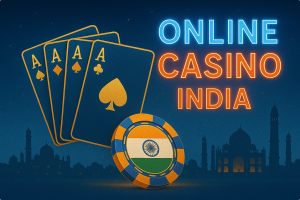
Online Casino South Africa

Online Casino New Zealand

Online Casino India

Online Casino Australia

Online Casino UK

Online Casino Canada

Online Casinos

Tracklist
01. Approach Of The Greeks
02. Achilles’ Destiny
03. The Opening
04. Achilles And Boagrius
05. Sparta
06. Helen And Paris
07. D-Day Battle
08. Thousand Ships
09. Mourning Women
10. Achilles And Briseis
11. Battle Of The Arrows
12. Greek Funeral Pyres
13. Hector, Hector!
14. Achilles And Hector Fight
15. Hector’s Funeral
16. The Sacking Of Troy
17. Achilles’ Death And Finale
18. Closing Credits Chant
19. James Horner – Troy Theme
Wavepack (http://www.mediafire.com/?hcscg3nghgpai)
by Gabriel Yared
For the many people who have contacted me through email and other means, I would like to summarise and present the facts which led up to the rejection of my score for the film Troy, after nearly a year of great and very fruitful collaboration with the director Wolfgang Petersen.
I first met Wolfgang Petersen in March 2003 when he presented to me the idea of working on the score for Troy. We got off to a great start and he explained that he’d come to me to bring a deeper level of emotion to his film, and that although he knew I wasn’t well known for writing big epic scores he told me he was confident from the things he had heard from my previous work that I would be more than capable of delivering a great score that would have a great original flavour.
In April 2003 I began work on the source music which needed to be pre-recorded as it was featured in the film. This was a great challenge as it required the creation of a convincing and effective ancient sound. The scenes included dances, funerals, mourning women, and even drinking songs. In order to recreate the wailing and crying of the mourning women I used a Bulgarian choir and some Eastern European soloists to make what turned out to be a great sound, very evocative of the setting. These mourning women pieces also gave me some great ideas that I would later incorporate into the underscore and soundtrack as a whole. It was also at these sessions that I met a young Macedonian singer, Tanja Tzarovska, who was to later go on to feature in the score and the song.
Later in this year I started to think of the score and I knew there would be a lot of music (in fact Wolfgang spotted just over two hours of music). I knew I had to have a good overall plan and structure in mind. After much research, writing, rejecting, and revising I finalised the thematic ideas for each of the important characters, groups, and locations, ensuring that these thematic cells could be related and readily combined, expanded, merged, or superposed.
My overall concept was to create a classic-yet-modern score, epic and yet subtle and emotional. Classic in its elaborated harmonies, architecture, and structure, harking back to classic forms (such as the fugue based on Priam’s Trojan theme). Modern in the way it was shaped and moulded to the action, and also in the sound of the score. I decided to supplement the large orchestra with a 25-piece brass section to provide a different colour, and a large choir which was sometimes triple-tracked to give support and drama in the large battle scenes, as well as to provide colour and give an overall feeling similar to that of an epic Cantata. The choir would say meaningless, invented-but-sonorous words written to enhance colour and emotion, as the choir of an ancient Greek tragedy. I also had a group of six percussionists who would overdub many interesting ethnic and conventional sounds and rhythms to work with other sampled percussion created by my sound designer Nathaniel Mechaly. The other significant colour would be based on the Bulgarian and ethnic vocals inspired by the source music. I would use a phrase of the Bulgarian choir to act as a distant siren (as in the very opening of the film and the ending), and then at certain important moments of the film I would use Tanja’s voice (sometimes accompanied only by percussion), like a "voice of destiny" (for instance in key moments such as the fight between Hector and Achilles). So this was the vision and plan of the score that came through after many approaches and much help and support from my team.
Having settled on the overall ideas and concepts I then set to work writing each cue in detail and providing demos so that Wolfgang could hear what I was doing and become familiar with the themes and concepts. In November 2003, working together with Kirsty Whalley, I provided a very detailed, orchestrated demo with full orchestra, choir, percussion, and even vocal samples for every single cue. Wolfgang was genuinely delighted with everything we sent to him, he loved the big epic sound, powerful and yet still moving and emotional. Of course he had some comments here and there which we always endeavoured to fix straight away. I also composed and demoed a beautiful song based on the love theme of Helen and Paris. Tanja Tzarovska, who was to sing the song, also wrote lyrics in Macedonian.
14th February and the next stage was to join my friend and engineer Peter Cobbin at Abbey Road Studios for the recording of the score. The next three weeks of recording were very tough and tiring with very long days of intense work, recording a 100-piece orchestra for two sessions a day followed by evenings of overdub sessions. It was a wonderful time, however, of creation and realisation and much enthusiasm from Wolfgang and the producers and production team. Wolfgang was over the moon and could be heard in the corridors of Abbey Road Studios singing the main themes, he was enchanted with the music and began to wonder about the temp music he’d been using thus far for the test screenings. So it came that Wolfgang used all his charm to persuade me to allow him to use some of our unfinished monitor mixes to replace the temp music. Despite my misgivings he seemed so keen and proud of the music that I agreed, providing he promised that it would be used just to help him for the previews and would not be judged at all since it was work in progress — completely unmixed and often without all of the final overdubs. So, it fell to Allan Jenkins (music editor) to work tirelessly to conform all of these monitor mixes to the appropriate cut at very short notice whilst we all continued with the work of finishing recording the score. The monitor mixes, however, were very well received by all the sound department working at Shepperton Studios, and Wolfgang was delighted with the way in which the music worked at the temp dub. Indeed, after the run-through in the theatre the evening before the preview Wolfgang called the team at Abbey Road from Sacramento to say how great the music sounded.
After the test screening on 10th March, though, everything had changed. The focus group at the preview decided my music was "overpowering and too big, old fashioned and dated the film." Thus in this 24-hour period my score was completely rejected by director and studio, and a collaboration of one year came to an end, despite the fact that it was unfinished work and that the dub was temporary and, although good, not always perfect. What shocked me the most was that I wasn’t given the chance to fix or change my score or even to answer to any of the questions or accusations being leveled at my work, despite the fact that I had sessions booked to redo some cues to the new picture and new versions of other cues. Indeed, the decision to replace me had been taken and meetings with other composers had already taken place before I even spoke personally to Wolfgang. I was later informed that it was "…a problem with the writing" and that the score was beyond the hope of being fixed and they were happy to have a new composer write the whole score just a month-and-a-half before the worldwide release on the 14th May.
Throughout the whole project I had felt that my relationship with Wolfgang was very strong and I am convinced that he was more than happy with my score, he was very supportive and enthusiastic and attended nearly every recording session.
In the end I am proud to say that with the great help and support of all my team I succeeded in producing what I firmly believe to be my finest score. It is original, musical, and every single cue is crafted with a great deal of thought, heart, and inspiration in a way that I feel works fantastically with the picture. I feel that my score lifted the picture and gave some depth and emotion to many of the scenes which gave another element to the film as a whole in amongst the terrific and exciting action scenes. My music was fantastically recorded and mixed, and the detail of each overdub layer gave a great and characterising sound which was completely up-to-date, but with the scale and class of a great epic.
I apologise to those reading this who will never get to hear this score. Unfortunately it is not my property, so I will have to hope that one day it will get a commercial release, albeit in this unfinished form. As they will not be credited in any formal way I would like to thank my team for their fantastic skills, support, and indefatigable and enthusiastic hard work. I would also like to thank the wonderful musicians, not only for their fantastic performances, but for all of them who came to visit me (after they heard the bad news) to give their support, and for the respect and affection which they always show me. The messages of how they enjoyed performing the score and how much they enjoyed playing it to the picture on the big screen mean so much to me, this and the support of my team is the best award I could have.
Music Editors:
Allan Jenkins & Kirsty Whalley
Orchestrators:
Jeff Atmajian, John Bell, Kirsty Whalley, Stephane Moucha
Music recorded at Abbey Road Studio 1 by Peter Cobbin
Music mixed by Peter Cobbin
Assistant recording engineers and additional editing:
Richard Lancaster and Sam Okell
Assistant mixing engineer:
Richard Lancaster
Orchestra and Choir Conducted by:
Harry Rabinowitz
Additional Conducting:
Nick Ingman
Sound Design and Synth Programming: Nathaniel Mechaly
Score Supervisor:
Jean Pierre Arquie
Transcriptions:
Stephane Moucha
Music Preparation:
Dave Hage, Rob and Nick Mera of Dakota Music
Orchestral Contractor:
Isobel Griffiths
Choir Master:
Jenny O’Grady
Vocal Soloist:
Tanja Tzarovska
Additional Vocals:
Dessi Slava, Vivian Ellis, Belinda Sykes
Choir Lyrics:
Tanja Tzarovska
Special thanks to:
Colette Barber, Marianne Jenkins, Frank Ricotti, Emily Jenkins,
George and Ellen at Abbey Road, Cecil the Driver
www.gabrielyared.com (http://www.gabrielyared.com)
Source of the quote: "The Score of Troy – A Mystery Unveiled: by Gabriel Yared (http://www.thescreamonline.com/film/film4-3/yared.html)
PS: Thanks a lot for this lossless version. Perhaps it will encourage me to listen to it more carefuly as it sounds beautiful. 🙂
–
Problem is…. this wave file. I can’t get it to break into individual tracks. It also runs longer than the average CD. Can this be made available in some other file format? Nice that the ‘glitch’ that was in previous bootlegs has been repaired.
Edit: I have a different tracklist. I have track 18 titled as ‘End Credits Song’ (4m:36s). It’s the vocal song of the love theme melody of ‘Helen & Paris’. I presume it is the same version of ‘Closing Credits Chant’, on the tracklist of the original post?
–>Medieval CUE Splitter (PC) (http://www.medieval.it/cuesplitter-pc/menu-id-71.html)
Meanwhile I used Nero… listening to the music against the printed cue log… and created splits (though some cues blend together) which took the length of the recording for the most part. But needed to edit out those wailing women tracks. 😉 This is probably the finest version of Yared’s score available. No flaws. Great audio. So thank you to the original poster as well (even with the enigmatic wavepack).
But is it just me, or can anyone else taste the bitter salt-in-the-wound irony of including the theme written for the movie by James Horner as a "bonus track" on the score written by Gabriel Yared? Made me laugh !!
So far I’ve only gotten through to track 5 (Sparta), but I guess I’m the only one that prefers Horner’s score over Yared’s.
Now, I’m not Horner’s biggest fan (I found his work on Avatar to be bland, and definitely don’t like how he keeps recycling his work). However, I think Troy is probably one of my favorite scores of his, along with Patriot Games and Apollo 13.
I just love how he interwove the choir with his orchestral work (which was used magnificently in tracks "The Temple of Poseidon" and "Hector’s Death").
Horner & Yared’s scores are just trying accomplish different things. Yared’s is very loud and bombastic, while Horner’s is more quiet (in a sense) and emotional.
But, overall I’m biased, because Troy is one of my favorite films of all time (not in my Top 10, but in my Top 25). Same goes for Alexander and it’s score by Vangelis.
Heres one in FLAC, separate files confirmed with AccurateRip that I upped.
Bear in mind one track at least is fake lossless, but thats how it is on my pressed disc.
It’s amazing music, no question, and I enjoy it so much, but I have to wonder how well it would have served as an actual film score. I don’t mean to sound like I’m agreeing with Horner’s mean-spirited and gratuitous comments, but I have to wonder if the music doesn’t have too much presence, more like a performance piece than a soundtrack. I’d be really interested to see a cut of the film with Yared’s music edited into it, so we can all hear how well it might have worked, to find out if it could augment a scene rather than overwhelm it.
Myself, there’s a fair bit I like about the finished film as it stands – the reworked version, anyway – but I find Horner’s score drab and undifferentiated. And the way it’s allowed to just saw away in the background in so many spots, it sounds to me like the film-makers are well aware how mediocre the finished effort is.
Myself, there’s a fair bit I like about the finished film as it stands – the reworked version, anyway – but I find Horner’s score drab and undifferentiated. And the way it’s allowed to just saw away in the background in so many spots, it sounds to me like the film-makers are well aware how mediocre the finished effort is.
Horner’s version has some good themes in it for sure (some lame ones, too.) The Scene entering Sparta for the first time is quite cool, and the Hector/Achilles fight is good, too. But for Horner to throw shit is a little unfair, especially from the guy who wrote a piece so close to another piece of film music that Disney had to buy the rights to the music for fear of being sued….
Can anyone guess the movie?
This is sort-of what would happen in a theoretical world where Ridley Scott went back in time, kidnapped Max Steiner, brought him forward to 2000 and asked him to score Gladiator. Let’s assume Max is feeling a bit off and therefore ignores his natural instinct which would be to say "No, no bloody way!" and jump right back into the time portal. He takes the job. He watches the movie and tries to reconcile it in his head with his personal concept of a historical epic. That doesn’t work, so off he goes and writes the greatest score of his career… for the version of the movie his brain watched, which was filtered through his 1930’s sensibilities. End result, great music but terrible score that would draw attention to itself – in the bad way – simply for being completely at odds with the style of the movie.
Film making has to become earnest and theatrical again in order for this type of score to fit.
There are a few examples on Youtube where somebody has synced up Yared’s score with the movie…
Here’s a good example: YouTube – Troy – Achilles vs. Boagrius (rejected score) (http://www.youtube.com/watch?v=a2BxJoWgoyo)
It feels like William Shakespeare writing an episode of Glee. It’s hard to describe, but when I hear the music in the context of the film, it sounds very self aware and occasionally downright silly. When I hear it on CD, it sounds like one of the finest modern symphonic works ever written. I prefer to think of it that way – as a truly epic tone poem (and when I use the word "epic" I do so in the traditionalist sense) inspired by Homer’s "The Iliad".
But point taken; the music on that clip is too loud. If I remember correctly, the person who did it had to mix it that high in order to cover up the fragments of the Horner score that he wasn’t able to filter out.
It’s a weird feeling of ambivalence it gives me. As I say, the music is superlative – but I just can’t shake that strange sensation of wishing it wasn’t there when I hear it synced up with the film.
It’s a shame Petersen didn’t make the movie Yared scored… it could’ve turned Hollywood around overnight. As it turned out, it sunk into obscurity and the only lasting impact, ironically, is that it seems to have cost Yared his career outside of France. (Though I expect that may have more to do with Yared’s understandable, but highly unprofessional, open letter of venom, unauthorised release of the score on his website, and subsequent pressing of this promotional CD at his own expense…
Interesting side note; Harry Rabinowitz conducted this score. He was 88 years old at the time. He’s 94 now (turning 95 on March 26th) and to my knowledge, still working. A really great man, and a miracle of longeivity. 🙂
Gee, thank you for correcting my heinous error. 😉
The internet really could use a "tone of voice" and "facial expression" upgrade so it’s easy to differentiate between good-natured sarcasm and "wah wah wah, up yours you sonaovabitch" attitude… 🙂
Wow. Simply WOW. I have never read anything so absolutely profound about a film score versus the dreadful film it was married to. Much like all those wonderful Goldsmith scores for so so many dreadful movies.
Well said, Tangotreats! Great insight. 😉
———- Post added at 08:16 PM ———- Previous post was at 08:02 PM ———-
There are a few examples on Youtube where somebody has synced up Yared’s score with the movie…
Here’s a good example: YouTube – Troy – Achilles vs. Boagrius (rejected score) (http://www.youtube.com/watch?v=a2BxJoWgoyo)
It feels like William Shakespeare writing an episode of Glee. It’s hard to describe, but when I hear the music in the context of the film, it sounds very self aware and occasionally downright silly. When I hear it on CD, it sounds like one of the finest modern symphonic works ever written. I prefer to think of it that way – as a truly epic tone poem (and when I use the word "epic" I do so in the traditionalist sense) inspired by Homer’s "The Iliad".
Interesting. Hearing Yared’s music with the stupid film. Archilles leaping up endlessly like a rabid kangaroo. I’m afraid I have to disagree on points made here. I think the dynamic music fits the scene just fine. But the music would not have saved the film no matter what. Claiming the score was old fashioned and didn’t fit, again, just comes down to Warner Bros. looking for an excuse- and hiring Horner to rescore is like putting lipstick on a pig. It is still a pig. But a pig that is now upset.
This film shot itself in the foot when it took out the Gods… and when Orlando Bloom looked prettier than the actress playing Helen. 😉
And please God, keep Shakespeare away from GLEE at all counts!!!!
Here’s a good example: YouTube – Troy – Achilles vs. Boagrius (rejected score) (http://www.youtube.com/watch?v=a2BxJoWgoyo)
It feels like William Shakespeare writing an episode of Glee. It’s hard to describe, but when I hear the music in the context of the film, it sounds very self aware and occasionally downright silly. When I hear it on CD, it sounds like one of the finest modern symphonic works ever written. I prefer to think of it that way – as a truly epic tone poem (and when I use the word "epic" I do so in the traditionalist sense) inspired by Homer’s "The Iliad".
Couldn’t agree more. Thanks for the link.
They can use scores recorded in their respective countries and in their studios vaults all day long, as per what ever laws are there for age/use, to bootleg.
There was never a promotional CD, there was a private edition handed with confidence to a select handful of people. That confidence was not kept. Neither of his rejected scores in other films since then, have surfaced as a result ("The Tourist", maybe another [he’s been replaced on three other films, but no confirmation of score done]).
The song, tacted on, he did the instrumental music for and the words. I’ve not found a lossless copy of the song yet, only MP3 versions.
troy-rejected-score-86826/#post2404204 (http://forums.ffshrine.org/f92/troy-rejected-score-86826/#post2404204)
troy-rejected-score-86826/#post2404204 (http://forums.ffshrine.org/f92/troy-rejected-score-86826/#post2404204)
Thanks, but I found that one too :E It’s just that it has one huge file which I can’t split, that’s my issue. I’ve seen a version where someone split it into cues and i’d like that version.
I’ve tried splitting the one file myself with Cue Splitter but it didn’t work for me.
"Filename parameter for "FILE" command is empty!"
"Critical error: operation interrupted at line 7".
Edit: Never mind… It worked after I replaced the file =]
Wow. Simply WOW. I have never read anything so absolutely profound about a film score versus the dreadful film it was married to.
and hiring Horner to rescore is like putting lipstick on a pig.
And that’s about the size of it. the film could do neither score justice, least of all Yared’s.
